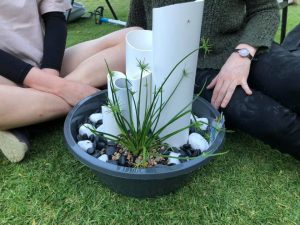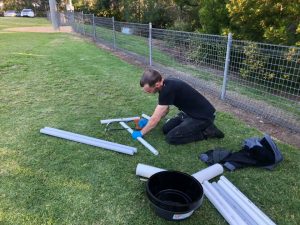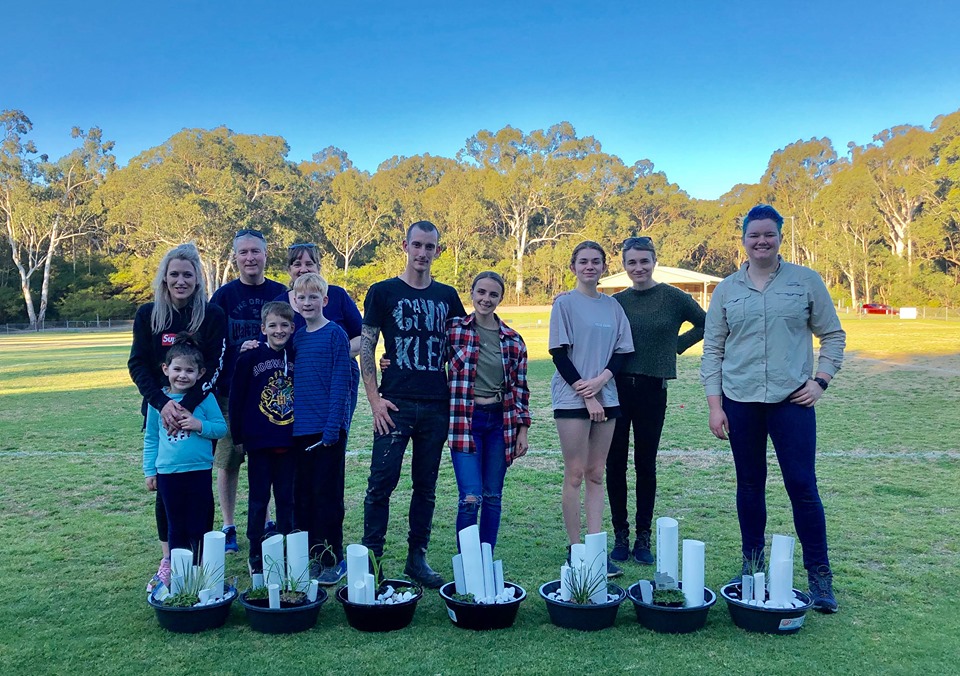We don’t think about frogs too much, as we don’t see them due to their relatively small size and amazing camouflage ability, depending on the species of course.
But despite the fact they aren’t talked about enough, they actually play a significant role in the healthy functioning of our ecosystem. They are what is called an indicator species, which means if frog populations are decreasing, then an imbalance has occurred within the ecosystem. Some common reasons as to why frog species are declining are due to disease, invasive fish predation, UV light, habitat disturbance, and herbicides. Water quality due to human activities is also another cause to a decline in frog populations, as detergents, chemicals, and heavy metals are washed into waterways when it rains, polluting them and impacting the wildlife that reside there.
Frogs also play a significant role in the food chain, as they are eaten by birds, snakes and lizards. In return, frogs eat insects, other frogs, mice and even small birds! If frog populations continue to decline, a serious imbalance in the food chain will occur.
How Can We Help?

To help Australia’s frog species such as the common Persons tree frog or the Striped Marsh Frog, you can create a form of habitat for the frogs when they come across your backyard. When we create working habitats for native animals we are proving a corridor for them to cross from one bushland or reserve, to the next. Frogs need protection so by creating a Frog Hotel, you are providing them with a place to rest and have shelter.
Make Your Own Frog Hotel
To create your own Frog Hotel you will need the following:
Equipment:

- Saw
- Sandpaper
- Drill
Materials:
- 1 Plastic tub
- 2 PVC pipes
- 1-3 native water plants
- 250 grams of pebbles
Method:
- Saw the PVC piping into various sizes
- Using the sand paper, sand away the edges of the PVC pipes for a smooth finish so the frogs do not cut themselves when climbing in
- Drill a small hole into each PVC pipe, closer to the floor of the tub. This will help with water drainage.
- Create your design by setting up your PVC piping however you want within your chosen container, keeping them vertical or diagonal
- Add in your water plant
- Add in some pebbles
- Pour water into the pipes and onto the pebbles. Your frog hotel is now ready and waiting for guests!
You could also add in a solar light, which will attract insects at night for the frogs to feed on!
The Fred Caterson Landcare Group
At the Fred Caterson Landcare Group, we spent an afternoon creating Frog Hotels for our backyard buddies. Everyone had slightly different designs but all looked great in their own way.
One frog at a time, we are helping them survive within a highly urbanized environment.
A couple weeks after the activity, a Perons Tree frog was found in one of the girls frog hotels, which was shared on our Facebook group.

At the Fred Caterson Landcare group, we meet up monthly to do different activities that engage the Hills Shire community with the natural environment, including bushcare.
If you would like to attend one of our free activities, please either add yourself to the group here, or email us at danielle@chen.org.au.

